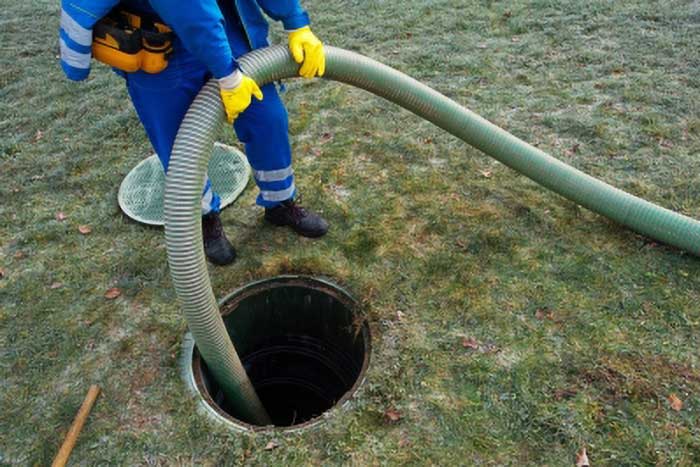
Homeowners in Kansas City should never ignore septic tank odor or sewer smell. Odors like the smell of sewer gas, methane gas, rotten egg smell, hydrogen sulfide, or foul odors in general when it comes to your septic system shouldn’t be ignored. The problem isn’t just the stench; it’s also a health issue, especially when these gases are in high concentrations. There are loads of bacteria and viruses in home wastewater, plus nitrogen and phosphorus, that can seriously harm the environment, according to the U.S. Environmental Protection Agency. If you notice septic tank smells in your yard, contact a plumber to inspect your septic tank system for any concerns with a clogged drain or sewer line, a failed drain field or leach field, or any other reason for the bad smells.
Plumbing problems like these can start small with a simple foul odor, odd house smells, an occasional gurgle, or even a minor but consistent odor problem. When these start, it is important for homeowners to take action to ensure there is no clogging in their plumbing systems, especially drain lines and drain pipes. There are DIY steps you can take, but when it comes to septic tank odors, you may look to hire a professional plumber to address the situation.
Common Causes of Septic Tank Odors
If you’re a homeowner asking yourself: “Why does my septic tank smell?” then you’re probably experiencing a smelly septic tank, which isn’t fun for anyone. When it comes to septic smells, there are a few common causes of foul smells. The most common causes include clogs, full tanks, and blocked vents.
Clogs: when your sewer system has a clogging issue, you may need professional drain cleaning, so an emergency plumber can stop toxic gases from getting inside the home. Contact your local residential or commercial plumbing service for immediate septic system service and removal of the possible blockage.
Full tanks: A tank can get too full or overflow if the pump stops working. This can also be accompanied by an overflow into your floor drain, causing a sewage backup (which, of course, is followed by an incredibly strong sewer gas odor). Emergency plumbing services can fix septic tank smells, restoring the normal flow of wastewater so there’s room for new inflow. Local plumbers can get on site quickly to get your tank pumped out and things back to normal.
Blocked vents: Venting is key, and if a vent pipe is covered or has failed, this lack of plumbing vent can cause sewage gas to build up, creating toxic and flammable environments indoors. A septic tank odor neutralizer won’t eliminate the risk, as bacteria do not cause the problem, but because the vent stack for the septic system has failed. Another way to correct odors with blocked vents is to place a carbon filter on top of them if accessible. Carbon filters can assist in absorbing foul smells, but make sure you use a filter that does not obstruct airflow or block it further.
DIY Solutions to Septic Tank Smells
If you have an understanding or knowledge of how the septic system works, then you might be able to control the bad smell or eliminate it altogether. Even though clogs, full tanks, and blocked vents are the most common causes of septic smells, it’s not all of them. Sometimes the smell can be attributed to other factors that a homeowner can restore on their own. Below is a list of ways a homeowner can put their DIY skills to the test and combat the septic smells.
Correcting pH levels: Within a septic tank, there are microbes or bacteria that have the purpose of breaking down waste solids. These bacteria can only survive when the pH level is maintained between 6.8 and 7.6. If the pH level is too high and becomes acidic, then a rotten egg odor can develop. Homeowners can work to correct pH levels by adding a cup of baking soda into a sink drain or toilet at least once a week. This will help correct the pH level within the septic tank and maintain its odor.
Check your manhole cover: A manhole cover is typically a concrete, metal, or plastic lid that is used to cover the access point to your septic tank. Depending on the material, there could be a crack or a worn-out manhole cover that no longer seals. Check your manhole cover for any noticeable cracks/open areas, and try to take the lid off. If the lid is extremely loose or not secure at all, then it’s time to replace it with a new one.
Change your wax seals: If you have an odor most noticeable in the bathroom and you have plumbing experience and trust yourself, then pull out your toilet and check the wax seal. Sometimes the issue could simply be a dried wax seal. If this is the case, all you need to do is simply remove the toilet and install a new wax ring. If you’re unsure about your DIY skills, then call a licensed professional such as A-1 Sewer & Septic to get the job done for you.
Be cautious of septic additives: Some articles or people may suggest using septic additives in your system to help eliminate odors. As a homeowner, it’s best to do your research on what additives are best for your system and if they are needed at all. Using additives does not guarantee a solution, and depending on the additive, it can disturb the natural activity already in the system.
What Should You Do if You Smell Septic Tank Odors?
These all indicate a problem, but these issues can be prevented or resolved with a professional plumber’s assistance. Plumbing services such as inspections, septic tank pumping, part replacements, leak detection, and sludge/organic waste removal can stop septic odor inside house areas and prevent new septic system smells from occurring.
Professional plumbers have access to tools and have experience in different methods to address these problems correctly. Sometimes it takes more than bleach and a wax ring to fix odor problems, or a new p-trap for the sink drain pipe, or making sure there’s no blockage for your washing machine drain line; any of these may fix the problem temporarily, but it can often take a pro to check every possibility and to confirm what truly needs to be done.
A-1 Sewer & Septic has been professional and quickly servicing the plumbing and septic system needs of Kansas City homeowners for decades. Our plumbers can tackle practically any need your plumbing system may have.
To get started and schedule a thorough septic system inspection in Kansas City, call us at 913-359-8622.



